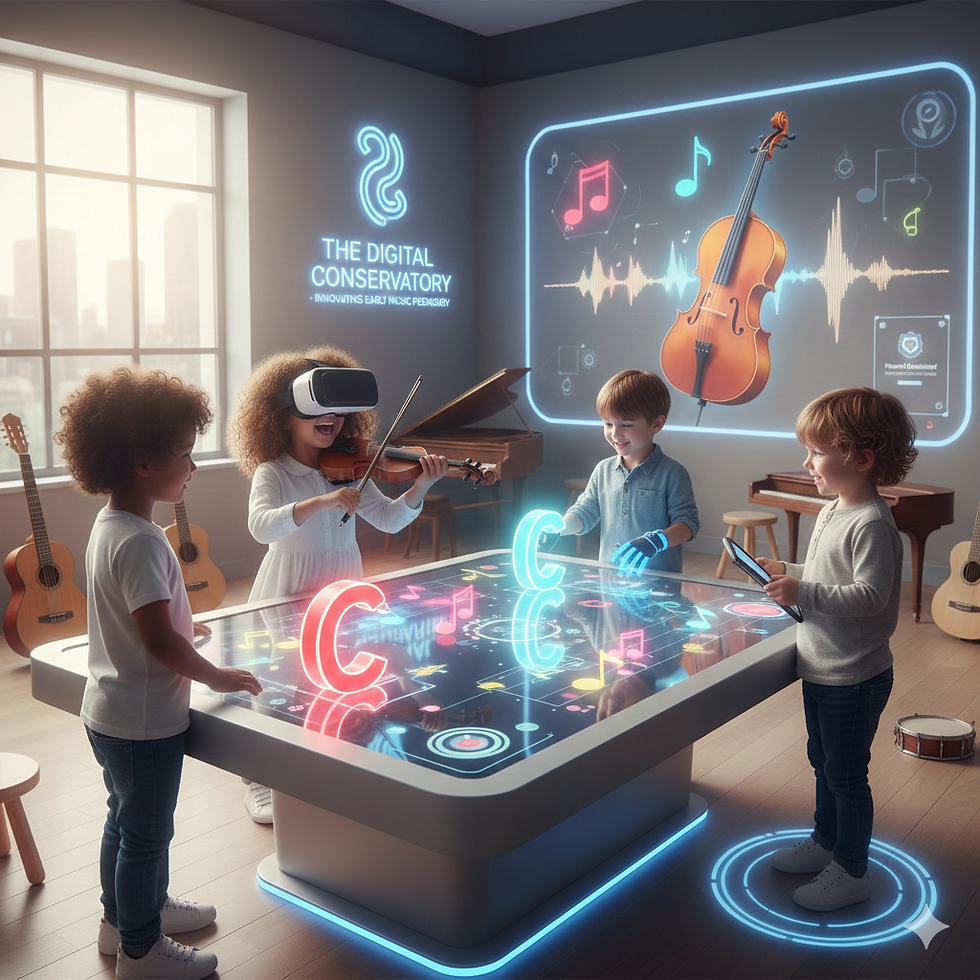"Rocking the Classroom: How Little Kids Rock is Revolutionizing Music Education in the USA"
- Dec 7, 2024
- 3 min read
Updated: Dec 18, 2024
Music education has long been a powerful force in shaping young minds, fostering creativity, and building community. But traditional music programs often focus on classical or marching band repertoires, leaving out the modern, diverse genres that many students listen to and resonate with daily. Enter Little Kids Rock and its innovative Modern Band program—a movement that has transformed music education in the United States by bringing a fresh, inclusive approach to classrooms across the country.
What is Little Kids Rock?

Little Kids Rock is a national nonprofit organization with a mission to ensure all children have access to the transformative power of music education. Founded in 2002 by David Wish, a former elementary school teacher, the program began with a simple yet radical idea: music education should reflect the interests and cultures of students today.
Instead of relying solely on classical music or traditional ensembles, Little Kids Rock emphasizes Modern Band—a music program that incorporates genres like rock, pop, hip-hop, R&B, and Latin music. The program equips schools with instruments, curriculum, and teacher training to build a music education experience that feels relevant and exciting to students.
What is Modern Band?
Modern Band is the centerpiece of Little Kids Rock's approach. Unlike traditional band programs that prioritize orchestral instruments, Modern Band focuses on contemporary instruments such as:
Guitars
Keyboards
Drum kits
Bass guitars
Microphones for vocals
The program also embraces digital tools like MIDI controllers and beat-making software, reflecting the technology-driven music landscape.
What sets Modern Band apart is its adaptability. Students don’t need to master sight-reading before making music; instead, they learn through a combination of playing by ear, chord charts, and improvisation. This method lowers barriers to entry and allows students to start making music almost immediately.
Why is this Approach Revolutionary?
Cultural RelevanceTraditional school music programs often cater to genres that don’t resonate with many students. By incorporating the music they hear on the radio, in their communities, and on their playlists, Modern Band makes music education relatable and engaging.
InclusivityModern Band is designed to be accessible for all students, regardless of their musical background or skill level. It’s especially impactful in under-resourced schools where access to music programs is limited or nonexistent.
Creative ExpressionRather than focusing exclusively on technical perfection, the program encourages students to write their own songs, remix existing music, and explore their creativity.
Collaboration and ConfidenceModern Band fosters teamwork as students form their own bands and perform together. This collaborative environment helps build social skills and self-confidence.
Real Stories, Real Impact
The impact of Little Kids Rock is profound. To date, the organization has reached more than one million students and trained over 6,000 teachers across the United States.
Take the example of Maria, a 14-year-old student from a public school in Chicago. Before joining her school’s Modern Band program, Maria had no formal music training. Within a year, she was singing and playing keyboard in a band she helped form with her classmates. Not only did the experience ignite her passion for music, but it also improved her confidence and academic performance.
How Can Schools Get Involved?
Little Kids Rock offers training workshops for educators, providing them with the tools and confidence to teach Modern Band. Schools also receive donations of instruments and ongoing support to sustain their programs.
For educators or schools looking to start a Modern Band program, Little Kids Rock’s website provides resources, including:
Free lesson plans
Video tutorials
Community forums for teachers
A Call to Action for Music Learners
Whether you’re a student, parent, or music teacher, there’s something we can all take away from the Modern Band philosophy: music should be inclusive, fun, and a reflection of who we are.
For young learners, programs like Modern Band demonstrate that you don’t need years of formal training to start making music. Pick up a guitar, experiment with beats on a laptop, or sing your heart out—you’re already part of the band.
Conclusion
Little Kids Rock and Modern Band are reshaping the landscape of music education in the United States. By championing cultural relevance, creativity, and accessibility, they’re not just teaching kids how to play music; they’re empowering them to find their voices and transform their lives.
Let’s take a cue from this movement and reimagine what music learning can be—dynamic, inclusive, and truly transformative.



Comments